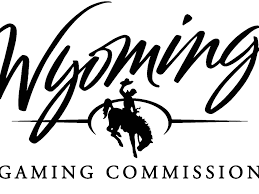The Wyoming Gaming Commission has ordered a study to consider the feasibility of additional gaming in the Cowboy State.
Wyoming’s state gaming regulatory agency has contracted Spectrum Gaming Group, a prominent consultancy that specializes in the regulation, economics, and policy of legal gaming markets. Over the next several months, the Spectrum team will study gaming in Wyoming and provide recommendations on regulatory improvements and insights into possible expansion.
The Spectrum probe will deliver the gaming commission with intel into how iGaming, or online slot machines and table games, could benefit the state. The report is to make a regulatory structure recommendation to authorize interactive gaming.
The feasibility study on gaming in Wyoming was authorized through the state’s 2024 General Appropriations bill that included funding for a “statewide study of gaming.” Currently, the Wyoming Gaming Commission regulates online sports betting, skill games, horse racing, slot-like historical horse racing machines, parimutuel wagering, and charitable gaming.
Wyoming is also home to four tribal casinos and a state-run lottery.
Spectrum will help the Wyoming Gaming Commission decide if it will recommend to the Legislature that they consider iGaming legislation during their 2025 General Session.
Wyoming is the least-populated state in the country with fewer than 600K residents. However, at more than 970K square miles, Wyoming is the 10th largest by total area. The state’s widely spread population has thwarted any commercial casino companies from seeking entry into Wyoming.
The state’s two federally recognized tribes — the Northern Arapaho and Eastern Shoshone tribes — own and manage four land-based casinos on their sovereign lands. The largest tribal casino is the Northern Arapaho’s Wind River Hotel & Casino in Riverton, which has 700 slots and more than a dozen table games.
Despite Wyoming’s small population, the state’s authorization of commercial online sports betting attracted the biggest players in the industry — FanDuel and DraftKings. Other mobile sportsbooks that paid the $100K licensing fee for a five-year permit include BetMGM, Caesars Sportsbook, and Fanatics. Penn Entertainment previously operated Barstool Sportsbook in the state.
Money won by the oddsmakers is subject to a 10% state tax. On average, the state is receiving more than $100K per month from online sports betting. Sports betting is also allowed in person at the tribal casinos.
Each of the aforementioned online sportsbooks operates online casinos where licensed. FanDuel and DraftKings have operational iGaming in Connecticut, Michigan, New Jersey, and West Virginia.
Sports betting is a small-margin business, something not the case with online casino gambling. In the states that presently have online sports wagering and internet casinos, most tax iGaming revenue higher than sports.
In New Jersey, for instance, online sportsbook revenue is subject to a 13% tax while iGaming is taxed at 15%. In Pennsylvania, sportsbooks share 36% of their revenue with the state while online slots are taxed at 54%.
With higher revenue and a likely higher tax rate than the 10% tax that Wyoming levies on online sportsbooks, iGaming could provide the state with a much bigger financial windfall. Wyoming Gaming Commission Executive Director Charles Moore says the Spectrum study will help the commission better weigh the pros and cons of iGaming.
“We believe that iGaming has the potential to bring significant benefits to our state, but we also recognize the need for a comprehensive and objective analysis to inform our decision-making process,” said Moore. “By working with Spectrum Gaming Group, we are confident that we will receive valuable insights and recommendations that will help us navigate this rapidly evolving industry.”
Legal iGaming remains limited to only seven states — Connecticut, Delaware, Michigan, New Jersey, Pennsylvania, Rhode Island, and West Virginia.










